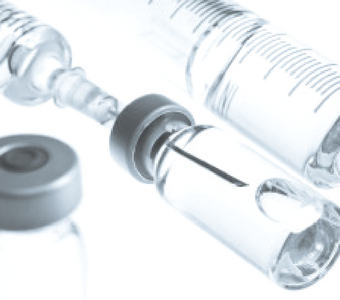Developers of potential Hepatitis C (HCV) treatments are among the most-traded in the healthcare industry on Monday, following an announcement from Abbot Laboratories (NYSE:ABT) that a combinations of it’s three-drug regimen (ABT-450, ABT-267, ABT-333) plus ribavarin demonstrated a 99% Sustained Virological Response (SVR) rate in treatment-naive HCV patients. Abbot released data from the Phase IIb study that demonstrated impressive results for null responders (treatment-resistant patients) as well, with a 93% SVR rate for patients taking a combination of two or three of the drugs, plus standard-of-care ribavarin.
The Aviator study evaluated the most common form of HCV in America and Europe, Genotype 1, without the use of interferon, which often causes flu-like side effects in patients. That goal, in fact, and improving the efficacy and pill burden of these drugs, has been the focus of most developmental treatments. Gilead Sciences (NASDAQ:GILD) leads the move to market these drugs, with its nucleotide NS5B inhibitor GS-7977 in a Phase III study for the indication. Abbot, however, just set a high bar for success in the segment. GS-7977 in combination with ribavarin produced an 88% SVR rate in treatment-naive, genotype 1 patients during a Phase II interim analysis in April. For a benchmark, Vertex’s (NASDAQ:VRTX) Incivek, approved in 2011, improves treatment-naive response to about 80% when combined with interferon and ribavarin (the two alone provide less than a 50% SVR rate in previously untreated patients).
Throw Achillion’s (NASDAQ:ACHN) non-nucleotide drugs and protease inhibitors into the mix, plus Bristol-Myers Squibb’s (NYSE:BMY) pipeline products – and Idenix’s (NASDAQ:IDIX) candidates– and the plot thickens further. For sure, all of these drugs are demonstrating strong efficacy in completed and ongoing trials, but the question is which one will hit the market first and which one will be most adopted. GS-7977 is most advanced in the development process and has the lowest pill burden; it may even be approved in 2013, with competitors to follow the next year. We still like the looks of Achillion as a potential take-out candidate – or long-term for its pipeline – and GILD will likely continue to perform well despite today’s weakness. Study details and a clearer view of the segment should be forthcoming after the meeting of the American Association for the Study of Liver Disease (AASLD) on November 9 – 13. The market for HCV treatments is expected to top $20B by 2020. ABT is up 3% in the afternoon and set an all-time high of $72.08, with GILD trading down 2%, and ACHN off by 3%.



